This week in ShoppingLab we broached the issue of artificial meat, grown by scientists in a laboratory. The process involves abstracting a cow's stem cells and growing strips of meat which will be transformed into what is being referred to as the 'Frankenburger.' The first of these burgers is expected to be served up in October this year, with the potential for full steaks over the next 30 years, but the process has been one of considerable contraversy.
We want to know - what do you make of meat that is grown in a laboratory?
The Dutch academic heading the operation, Professor Mark Post of Maastricht University, has said this is the future of our food, and as well as helping to protect the welfare of livestock and prevent mass slaughter, studies also reveal the process will be very environmentally friendly, reduce greenhouse gases by up to 96% in comparison to raising animals.
Do you consider artificial meat a good or bad thing? Would you be inclined to eat it if it was commerically available? ShoppingLab participants have weighed in with their views.
While some praise this step forward, also hailing it as a way to help end world hunger, others do not consider it progress at all, dwelling on the unnatural production process as well as considering the potential side-effects of the product too much of a risk. Some also criticise the way this will affect working farmers who would lose their jobs, as well as pointing out the solution to environmental and animal welfare problems is simply for people to eat less meat rather than find ways to consume more.

What do you think of lab-grown meat? Would you eat it? Join the debate by using Disqus below

Here's what our ShoppingLabs participants had to say...
Lab-grown meat is a GOOD thing
Argument 1: It's environmentally friendly

“Farm animals release a lot of greenhouse gases into the atmosphere” Thomas C, Stevenage
“Meat is a high energy product and often very damaging to the environment to produce. Even organic is not that environmentally friendly, a field is still a mono-culture” Bob, Stoke
“It could benefit the environment as cutting the problems caused by over grazing. The only potential problem would be the cost to farmers” Anon
"It will reduce the physical and environmental footprint of feeding the world (this assumes that it does not need vast quantities of plant matter or other resources in its production)” Anon
Argument 2: It can end world hunger

“The world's population is growing every year and needs different methods of producing food” Maz H Birmingham
“Anything that increases our ability to feed the world has to be good - assuming the meat has the same nutritional benefits” Anon
“If it could feed the word cheaply and stop famines it would certainly be a good thing” Jayess, Wales
“The volume of animals that are farmed and slaughtered for meat will eventually lead to food shortages. The human population is still expanding significantly every year because many governments refuse to do anything about it. We need to find ways to produce food on a huge scale that can cope with the ever increasing demand” Brucey B, Bournemouth
“If we get into a food crisis we can build our own - like Ikea!” Anon
“Because there is a food shortage in the world today and I don't condone allowing people to starve when we can do something about feeding them” Anita, Surrey
“Millions of people starving to death, it's a no brainer” Colin M Newcastle
“We will not be able to sustain the current growth of population around the world with the resources that we have. Any supplement to these resources must be a good thing” Sundog65, Glasgow
Argument 3: It prevents the killing of animals
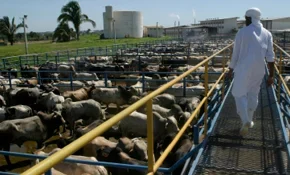
“It would be nice to be able to eat meat without it meaning a living creature had to be killed” Anon
“I think as people develop they will find the idea of killing animals for food will be thought of as barbaric” Anon
“Being able to lab grow it removes a large part of the conflict caused between meat eaters and vegetarians, if the meat is lab grown and non-sentient then the 'Meat is Murder' argument goes away” Anon, Reading
“It addresses many issues regarding treatment of animals and the harmful effects of ranch farming by third world countries” Anon
“I think the consumption of animal life has gone too far. I personally choose not to eat meat at all because I don't agree with the volume of meat produced, animals have as much right as we do to exist on this planet and their life is constantly wasted” H Moss, Hudderfield
“I think something needs to be done around the increasing issue of meat production and animal welfare during this process. I do not eat meat, which is a choice which comes from what meat production does to the planet (methane from cows for example) along with the disgusting mass production and inhumane treatment of animals” Linda, London
Argument 4: Land can be put to better use

“It means that less land used for pastoral farming which can instead be used for arable farming meaning more food for all” Thomas C, Stevenage
“Land used for animals can be used for other things” Al, Wales
“We can have more countryside used for leisure instead of factory-farming. Better for us as individuals, as a society, and for the animals” Anon
“It means more space to grow grains” Gillian H, Bath
Argument 5: It is an amazing scientific development
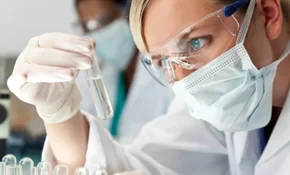
“Scientists have a duty to search for new ways of tackling the global problems we will be facing in the future. This might not be a perfect answer to curing the inequality of food supplies in the world, but at least it shows that someone is doing something!” GE, Liverpool
“Because it shows how innovative scientists are, it shows that developments are continuing to be made. It highlights the potential of future developments” David B, Southampton
“This may have medical applications; it may result in biotech products we can only imagine” Anon
“This research could lead to effective growth of larger-scale muscle tissue, possibly to the point where it could be used in reconstructive surgery - a person with a crippling muscle injury could have a replacement grown and installed” Alex Scott, Edinburgh
“Synthetic food creation aside, the benefit of this technology is that it paves the way for more wide-scale use of synthetic tissue generation to replace damaged tissue in casualties” Harley, London
Argument 6: It will be a better option

“During production, more beneficial nutrients can also be added making it healthier to eat meat” Thomas C, Stevenage
“If meat is grown in a lab then the issue of how the meat got to market is no longer an issue, the welfare of meat will not be questioned” David B, Sheffield
“The ability to produce tank meat is a real step forward in improving the diets of the population of the world at a much lower cost in resources than using conventionally produced meat. It is also likely to allow the production of meat of higher quality and better nutritional standards than low end conventional meat” Richard, Oxford
“What's the difference to normal meat?? It's made from the same DNA so it will be very similar and may even be healthier because they can add stuff to it” Anon
“It maybe our only option years from now... I would rather eat lab grown food than not eat at all. There is also a very high chance that the lab grown meat will be cleaner and contain less toxins than meat from a cow that has been fed with artificial fertilisers, pesticides etc.” Brucey B, Bournemouth
“It will provide meat safe from infections such as BSE and will provide food using less natural resources” Ann s East, Midlands
“If you eat lab grown meat you will not be digesting the drugs needed to help keep cattle healthy nor the growth hormones pumped into them” Mike E, Powys
“It means we can weed out stuff like BSE, and add in any nutrients, vitamins, and minerals the population is short on. We can grow a healthy society, using fewer resources” Anon
Argument 7: It's no different to what we already eat
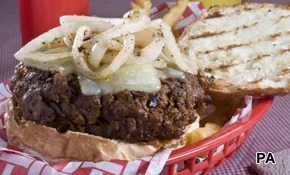
“It doesn't matter whether it has come from a living thing that has spent a few years growing up to be slaughtered or been grown in a laboratory; it’s still meat” Thomas C, Stevenage
“I cannot understand why anyone would object to it. Practically all the food you eat is made with chemicals or in factories that frankly are probably worse for food than labs” Anon
“What's the difference between meat grown in a laboratory and much of the manufactured foods we eat today? It's probably actually a safer option than real meat - mad cow's disease would presumably not be caught by eating laboratory produced meat” Anita, Surrey
“We eat tomatoes grown in hydroponic farms” Donal Canard, Bolton
“Meat produced in a laboratory won't really be that much different to some of the vegetarian meat alternatives which are based on things such as growing fungi” JEP, Manchester
“I eat Quorn and I don't see much of a difference” Anon
“I eat cakes and sweets - much of them came out of a lab - is meat so different?” Anon
“We regularly eat processed foods prepared in factories using the worst parts of animals e.g. hotdogs” Anon
“We regularly ingest far less biologically sympathetic laboratory outputs when we take medication therefore meat produced similarly holds no fear for me” Anon
Lab-grown meat is a BAD thing
Argument 1: It could be dangerous
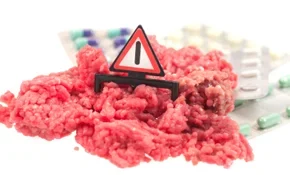
“We don't know what the side effects may be” Anon
“I would be worried about the health implications and whether it was safe because it’s bound to have chemicals in it” Lynn C, London
“It's not real food; it's extremely dangerous to produce food in this way and has not been tested properly. We should never allow this type of food production” Anon
“I can only think of things that could go wrong and create a catastrophic incident that could see large populations wiped off the face of the earth” Colin, South Wales
“Who knows what chemicals they will use and what eventual effect it will have on those who eat this stuff? I would far rather revert to being a vegetarian” Sarah, Ripon
“It has not been fully tested or evaluated for the long term effects on the human body” Anon
“We don't know how it will affect people who eat it in 20 years' time” Anon
“Are we now guinea pigs?” Anon
“It will take decades to understand if there are any long term negative effects on the people eating this meat - and by that time, it will be too late to do anything about it” Dave, Frampton-on-Severn
Argument 2: It's not natural
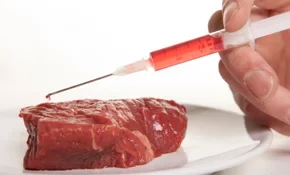
“This is not meat; it is scientifically-created protein. Meat should come from animals that have been treated with respect, cared for in natural surroundings and slaughtered locally and humanely” Annie, Ashford
“Because nature is nature and science is science and never the twain shall meet. Keep this freakish science to science fiction” Kris F, Essex
“It divorces us even further from the natural world and its resources” Geoff, Enderby
“I prefer the idea that my food came from a living and natural source. And I do not know where we would draw the line - would it be acceptable to eat human flesh grown in a laboratory?” Tony N, Reading
“I think we are messing too much with nature, although kinder to animals this is what has happened for centuries and we shouldn't mess with nature in this way” Anon
“Surely if anything is man-made it cannot be good for you. Think of all the chemicals used to create such a thing. Makes me feel sick” Anon
“The meat is not natural and the chemicals and hormones used to grow this 'meat' WILL have an effect on the person eating it. It is also not meat in our sense of the word because it does not come from a slaughtered animal and is man-made. It does not deserve the title 'meat'” Charli P
Argument 3: The 'ick' factor

“I don't want to eat meat that has been grown in the lab; it is inevitably going to be horrible” Anon
“Mary Shelly and Frankenstein come to mind!” Colin, South Wales
“It sounds horrendous; talk about overstepping the boundaries” Anon
“The very thought is repulsive” Anon
“Whatever they've grown in a laboratory it is not meat and should not be called meat. I'm quite people who can afford it will never eat it. The whole experiment reminds me of Soylent Green” Maggie L, London
“I can't give any reason other than it turns my stomach. There's something not right” Anon
“The idea of laboratory grown ‘meat’ just horrifies me” Anon
“It is animal produce without the animal. Very scary” Anon
“We are so close to the Frankenstein technology that within 20 years we will be making humans from the lab and it's about time this type of science was stopped” John R Merseyside
Argument 4: It's a waste of scientific resources

“The laboratory version has no merit other than to create a meat-substitute which is already widely available in many vegetarian forms” Annie, Ashford
“The research would be better used to grow new tissue for burns victims, instead for growing cow-less meat for the food industry” Sue, Liverpool
“Because it's unnatural, expensive and a waste of a good genetic scientist's time when he/she could be out curing cancer or something else useful” Freddie H, The Wirral
“Why are they wasting time and money investigating this issue when there are so many more worthwhile scientific tests that need to be done - e.g. to improve the quality of life/living time for those who are terminally ill?” Anon
“What would happen if there was some devastating event such as war or natural disaster which meant that the laboratories could not operate? How would people feed themselves then? We should be looking at sustainability, not manufacture” Anon
Argument 5: We should eat less meat
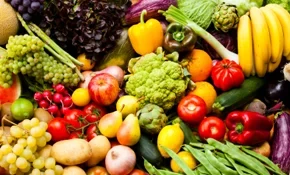
“It's bad enough people eat meat, without manufacturing a lab-grown substitute.
There are plenty of cheaper, healthier non-meat protein options - it seems we have got too used to meat everyday as a society.Plant-based protein is better for the environment, and has no risk of cancer”
Anon“Vegetables are the ultimate food source” Anon
“I have a very strict view on what I eat and only eat organic, free range foods and only meat two or three times a week. I don't think eating meat grown in a lab is necessary to have a healthy and nutritious diet” Anon
“Perhaps we should all eat less meat. Animals are not lifeless commodities. We need to stop putting a price on everything” Anon, Basingstoke
“The industrialisation of meat-rearing is a problem (for a whole host of reasons) but we should be looking at reducing our weekly meat consumption - not increasing it through ‘Pharmed Products’” Penny, Bournemouth
“Society should not have to rely on laboratories and factories for food supply; they should be concentrating on returning to as much natural produce as possible” Anon
“I think rather than trying to increase production of what we eat, we need to change what we eat to suit the growing numbers of people on this planet” Anon
“I think the answer to the planets problems is for us all to eat less meat - and share it around a bit more. I just read this morning that 1 million people in the UK are morbidly obese - we should be looking at healthier ways of eating not ways of producing more of stuff that is not healthy for us” Anon
“It is very possible to have a healthy and nutritious diet without resorting to eat meat every day. Meat is a luxury and should be treated as such” Anon
Argument 6: Farmers will lose their jobs
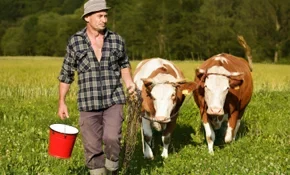
“I feel for the farmers and agricultural workers who would be put out of jobs due to this” Anon
“It would put more families and other workers at risk of job loss” Anon
“The introduction of man-made meat may put more farmers out of work and push up the price of traditional meat” Holly M, Manchester
“What is wrong with having the real thing? We breed livestock for food. What would this do to the economy and farmers in particular?” Anon
“I believe in supporting local small farmers, not big, remote, speculator financed corporations. Lab produced meat is likely to be much more environmentally unfriendly than traditionally produced meat. Lab produced meat is likely to be produced to a very strict budget - which means that corners will be cut, making problems with the quality and even safety of the product very likely” Anon
“It will put a lot of farmers out of business which is a real shame” Anon
It could be good and bad
“While I think it is clever, it doesn't do anything practical to help on a mass scale now - such as introduce hardy crop varieties - it seems to me more of a vanity project” Anon

“It's good because in years to come it will be cheaper to produce food and provide it to developing countries. This'll help to reduce hunger and malnutrition. On the other hand it makes me feel uneasy. I'm all for stem cell research in medical research but the thought of creating something artificial like that for food is a bit weird” M, London
“Scientists do all sorts of things in the lab many of which save lives, reduce suffering and make lives better. That doesn't meant to say that lab grown meat should be sold for burgers” Anon
“As a purely scientific advance it could lead to other discoveries that could lead to being able to feed more people more efficiently, particularly in disaster situations. Equally, it could lead to the production of 'growth enhancers' and the like that would be detrimental to user (i.e. a further junk food situation)” David, Welsh borders
“It’s neither good nor bad that it can be done; it's what is done with the discovery that matters” Anon
“People will choose what they want to eat regardless” Anon
“Excellent advances in science but could reduce the need for farmers and affect the economy” Anon
“Plenty of arguments for and against this. Excellent way of improving food production, however morally we are playing God, which seems uncomfortable” Anon
“My decision on this matter will ultimately depend on taste, safety and price” Anon
“Science should explore many options. Overall if we can't produce enough meat we would be better to be vegetarian. However careful regulation should follow any commercial use of it. GM foods seem to be more to do with monopoly and profit than yield” Anon
“In theory it seems a good thing, fewer animals will die and it probably will be far more efficient, but personally the thought of eating it makes me feel quite sick! And it will put a lot of farmers out of business which is a real shame” Anon
“There are many moral and economic benefits (cheaper meat and a new industry) but also many moral and economic downsides (playing God and the decline of cattle and sheep farming). They probably largely balance themselves out” Jack M, Manchester

What do you think of lab-grown meat? Would you eat it? Join the debate by using Disqus below







